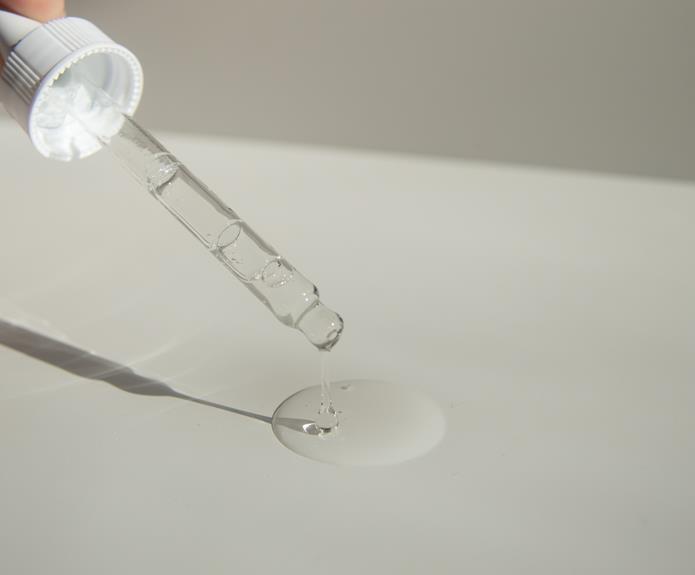Pharmaceutical Giants Face Lawsuits Over Deadly Defects
An alarming 80% increase in lawsuits against pharmaceutical companies has been witnessed in the past year. This surge in legal action, alleging flaws in design, manufacturing, or marketing of drugs, calls into question the ethics and transparency of these corporations. This article delves into the heart of the issue, scrutinizing key lawsuits and their implications, while underscoring the urgent need for strengthened consumer protection in the pharmaceutical industry.

Understanding Defective Drug Lawsuits
Frequently, pharmaceutical companies find themselves embroiled in lawsuits due to the release of dangerous or defective drugs into the marketplace. The significance of defective drug lawsuits is profound, as they serve as a check on these corporations, safeguarding public health and enforcing accountability. From a legal perspective, drug defects can occur at any point - during design, manufacturing, or marketing. A defective design lawsuit alleges inherent flaws in the drug, while manufacturing defects occur when a correctly-designed drug is improperly produced. Marketing defects, on the other hand, involve insufficient warnings or misleading promotion. Each lawsuit is a significant legal undertaking, potentially shaping industry standards and impacting future pharmaceutical practices.
Significance of Marketing Defects
How significant, then, are marketing defects in the context of these pharmaceutical lawsuits? The liability for marketing defects is immense as they can induce grave health complications or even death.
- Liability for Marketing Defects: Pharmaceutical companies may be held liable if they fail to adequately warn consumers about potential risks or side effects of their products, or if they market their drugs for unapproved uses.
- Impact on Patients' Lives: The impact of defective drugs on patients' lives can be devastating, potentially leading to irreversible health damage, financial strain due to medical expenses, or psychological distress.
- Legal Ramifications: These marketing defects can result in multi-million dollar lawsuits, damaging the reputation of pharmaceutical giants and causing significant financial loss.
Individual Vs Class Action Lawsuits
Distinguishing between individual and class action lawsuits is crucial in understanding the legal landscape surrounding defective pharmaceutical products. Individual lawsuits often involve a singular plaintiff seeking damages for harm caused by a pharmaceutical product. On the other hand, class action lawsuits involve a group of plaintiffs who have suffered similar harm. These legal recourse options provide different advantages and disadvantages. Individual lawsuits allow for personalized claims, potentially leading to higher damage awards. Class action lawsuits, however, offer a collective voice to multiple victims, often resulting in substantial settlements. It's critical for victims to understand these options and choose the most fitting legal recourse, as it can significantly impact the outcome of their case.
Benefits of Newsletter Subscription
In light of the complex and evolving landscape of pharmaceutical lawsuits, subscribing to a dedicated newsletter offers numerous benefits. These newsletter benefits extend to both the legal professionals involved in these cases and individuals that may be affected by these legal actions.
- Timely Information: A newsletter provides regular updates on the progress of ongoing lawsuits, keeping subscribers informed about recent developments.
- Digestible Analysis: Complex legal jargon is broken down into understandable language, making it easier for readers to grasp the implications of various legal actions.
- Direct Access: Subscribers receive this crucial information directly in their inbox, eliminating the need to search through various sources for updates.
In essence, a dedicated newsletter can serve as a valuable tool in navigating the intricate and dynamic world of pharmaceutical lawsuits.
Artificial Tears: Contamination Claims
While the benefits of subscribing to a dedicated newsletter are undeniable, it is equally crucial to delve into specific cases such as the contamination allegations surrounding artificial tears. The liability of artificial tear manufacturers has come under scrutiny following claims of contaminated products leading to unforeseen health consequences. These allegations underscore the ever-present contamination risks in healthcare products, even those as seemingly innocuous as artificial tears. As a recourse, victims are pursuing legal action, asserting that the manufacturers failed in their duty to ensure product safety. This case underscores the imperative need for stringent quality control measures in pharmaceutical manufacturing and the potential repercussions when these standards are compromised.
Legal Actions Against Artificial Tears
Legal battles are escalating as victims of contaminated artificial tears seek justice against pharmaceutical giants for their alleged negligence. These lawsuits pivot on three key aspects:
- Determining the liability of manufacturers, particularly in cases where contamination occurred despite following prescribed usage.
- Evaluating the extent of harm caused to the victims, including physical injury, psychological trauma, and financial burdens incurred due to medical expenses.
- Quantifying a fair compensation for harm inflicted, to alleviate the victims' sufferings and serve as a deterrent for future negligence.
The ramifications of these lawsuits could be far-reaching, compelling pharmaceutical companies to adopt stringent safety protocols. As victims fight for justice, the spotlight is firmly on the manufacturers, their quality control practices, and their responsibility towards consumers.
Baby Formula and NEC Risks
Facing a series of lawsuits, manufacturers of certain baby formula products stand accused of failing to warn healthcare providers and caregivers about the risk of necrotizing enterocolitis (NEC) in premature babies. This severe disease, often fatal, is allegedly linked to the consumption of formula contaminated with harmful substances. The lawsuits contend that these companies knew of the elevated NEC risks associated with their products but failed to adequately communicate this to the public. The premature baby population, already vulnerable, is thus exposed to a heightened risk. The lawsuits aim to hold these corporations accountable for their actions, or lack thereof, and seek justice for the affected families who had to confront devastating outcomes due to formula contamination.
Similac and Enfamil: Lawsuit Details
The lawsuits against Similac and Enfamil, major infant formula manufacturers, revolve around allegations of failure to warn healthcare providers and caregivers about the dangerous risks of necrotizing enterocolitis in premature babies consuming their cow's milk-based products. This has led to numerous legal challenges and similac and enfamil: lawsuit settlements.
The lawsuits hinge on three key aspects:
- Failure to warn: The allegations state that the companies did not provide adequate warnings about the potential health risks associated with their products.
- Necrotizing enterocolitis: Premature babies consuming these products are at a high risk of developing this serious condition.
- Legal precedents: These cases are setting precedents for future legal challenges in artificial tears cases and other pharmaceutical lawsuits.
Phenylephrine: Ineffectiveness and Lawsuits
Investigating the ineffectiveness of phenylephrine, legal professionals are now preparing potential class action lawsuits against pharmaceutical manufacturers. These lawsuits stem from declarations by FDA advisors, who have recently concluded that phenylephrine, a common ingredient in over-the-counter nasal decongestants, fails to provide its promised relief. Consumers, deceived by misleading marketing and sold ineffective products, may be eligible to participate in these lawsuits. These class action lawsuits aim to hold manufacturers accountable for the harm caused by their defective products and seek compensation for consumers who have unnecessarily suffered. As the investigation continues, the potential for legal action expands, creating a significant legal challenge for the pharmaceutical industry. Legal teams are diligently working to determine the full extent of harm caused by this ineffective medication.
Compensation for Misleading Marketing
Pharmaceutical companies are now being held accountable for misleading marketing practices, with numerous lawsuits seeking compensation for consumers who were sold ineffective or harmful products. These lawsuits have three primary aims:
- To seek punitive damages for deceptive advertising tactics employed by these companies, which often exaggerate the benefits and minimize the potential side effects of their products.
- To recover potential damages for patients who suffered physical or psychological harm due to the use of these products.
- To enforce stricter regulations on pharmaceutical advertising to prevent future instances of misleading marketing.
This wave of litigation sends a powerful message to the industry: false claims and deceptive marketing will not be tolerated, and victims have the right to seek compensation for their suffering.
Legal Perspective of Drug Defects
While pharmaceutical companies continue to be scrutinized for misleading marketing practices, it's crucial from a legal perspective to also consider the serious issue of drug defects. Such defects, whether in design, manufacturing, or marketing, could lead to severe health repercussions for consumers. From a legal standpoint, such defects expose these companies to potential liabilities. Injured patients can seek legal remedies, typically through individual lawsuits rather than class actions. These lawsuits argue that the pharmaceutical companies were negligent in their duty of care towards the consumers. Therefore, litigations not only aim to provide compensation for victims but also to enforce accountability, driving the industry towards higher standards of safety and transparency.
Healthcare Providers' Role and Liability
In a significant number of cases, healthcare providers also bear a degree of liability in the administration of defective drugs, necessitating a thorough examination of their role amidst these lawsuits. The legal implications are far-reaching, often leading to severe penalties for healthcare providers' negligence.
- Healthcare providers may be held liable if they fail to adequately inform patients about potential risks associated with certain medications.
- Providers can also be accountable if they continue prescribing a drug despite being aware of its defects or dangers.
- Furthermore, liability extends to providers who do not monitor their patients appropriately while they are on these medications.
Consumer Rights in Drug Lawsuits
Although the pharmaceutical landscape might seem intimidating, consumers possess significant rights when it comes to initiating lawsuits against companies that release defective or dangerous drugs. The cornerstone of these consumer rights is the ability to seek legal remedies for harm caused by these drugs. Legal remedies can include monetary compensation for medical expenses, lost wages, and pain and suffering. Furthermore, these lawsuits can often force pharmaceutical companies to recall dangerous drugs and improve their safety standards. The goal of these legal actions extends beyond individual compensation; they also aim to protect the public from harmful drugs. Therefore, understanding consumer rights in drug lawsuits is crucial to holding pharmaceutical giants accountable for their actions.
The Role of Pharmaceutical Manufacturers
Frequently, the role of pharmaceutical manufacturers comes under scrutiny when instances of defective or harmful drugs surface, as these companies bear the responsibility for the safety and efficacy of their products. This pharmaceutical manufacturer responsibility is threefold:
- Drug Development: The production process must adhere to stringent quality standards, minimizing the risk of defective drugs.
- Information Disclosure: Manufacturers need to provide comprehensive information about potential side effects, enabling consumers and healthcare professionals to make informed decisions.
- Post-Market Surveillance: Post-release, manufacturers are obliged to monitor the use and impact of their drugs, reporting any adverse effects to regulatory bodies.
The impact of defective drugs can be devastating, leading to severe health complications or death, thereby underlining the crucial role manufacturers play in safeguarding public health.
Seeking Accountability: Lawsuit Outcomes
The significant outcome of these lawsuits is the accountability enforced on pharmaceutical companies for the harm caused by their defective or dangerous drugs. This accountability has a substantial impact on public trust, as it shows that companies cannot recklessly endanger public health without consequences. However, proving liability in pharmaceutical lawsuits poses significant challenges due to the technical and legal complexities involved.
| Lawsuit Outcomes | Impact on Public Trust | Challenges |
|---|---|---|
| Compensation for damages | Improved trust in the judicial system | Proving direct cause-effect relation |
| Corporate accountability | Increased public scrutiny | Establishing negligence or misconduct |
| Regulatory changes | Enhanced faith in regulatory oversight | Overcoming legal and technical complexities |
| Public awareness | Better informed consumers | Counteracting corporate influence and resources |
These outcomes underline the importance of continued vigilance and robust legal action to ensure corporate responsibility.
Frequently Asked Questions
What Steps Should I Take if I Have Been Harmed by a Defective Drug or Supplement?
If you've been harmed by a defective drug or supplement, it's crucial to first seek immediate medical attention. Document your symptoms, the product, and its effects. Consult with an attorney to understand your legal representation options and compensation rights. They can guide you through the process of filing a lawsuit against the pharmaceutical company, which may include gathering medical records, providing expert testimonies, and negotiating settlements.
Are There Specific Regulations in Place That Pharmaceutical Companies Must Follow to Prevent the Release of Defective Drugs?
Pharmaceutical companies operate under stringent regulatory oversight for preventing drug defects. These regulations, enforced by bodies like the FDA, require rigorous testing and quality control measures throughout the drug development process. They mandate accurate representation of potential side effects, ensuring companies don't mislead consumers. Failure to comply can result in severe penalties. However, despite these robust frameworks, instances of defective drugs slipping through the cracks highlight the ongoing necessity for vigilant regulation and oversight.
How Are Settlements Usually Determined in Defective Drug Lawsuits?
Settlements in defective drug lawsuits are typically determined through negotiation strategies between the parties. Factors considered when determining lawsuit worth include the severity of the injury, the impact on the plaintiff's life, and the degree of negligence by the pharmaceutical company. The settlement aims to compensate for medical expenses, lost wages, pain and suffering. Legal counsel plays a crucial role in ensuring an equitable settlement is reached.
How Can I Prove That a Drug Defect Directly Caused My Injury or Illness?
Proving that a drug defect caused your injury or illness involves diligent evidence collection and expert legal representation. Medical records demonstrating the correlation between the drug usage and your health issues are crucial. Additionally, expert testimonies may be required to establish the link. An experienced lawyer can guide you in gathering the necessary evidence, presenting a strong case, and navigating the complex legal procedures inherent in pharmaceutical litigation.
Can a Healthcare Provider Also Be Held Liable if They Prescribed a Defective Drug?
In certain circumstances, healthcare providers may bear some responsibility if they prescribed a defective drug. This is particularly true if they failed in their duty of care or did not follow accepted professional practice. However, proving provider liability can be complex. The legal consequences depend on specific factors such as the provider's knowledge of the drug's defects, their adherence to prescribing guidelines, and the adequacy of warnings provided to the patient.

This post has been generated by AI and was not reviewed by editors. This is Not legal advice. Please consult with an attorney.




